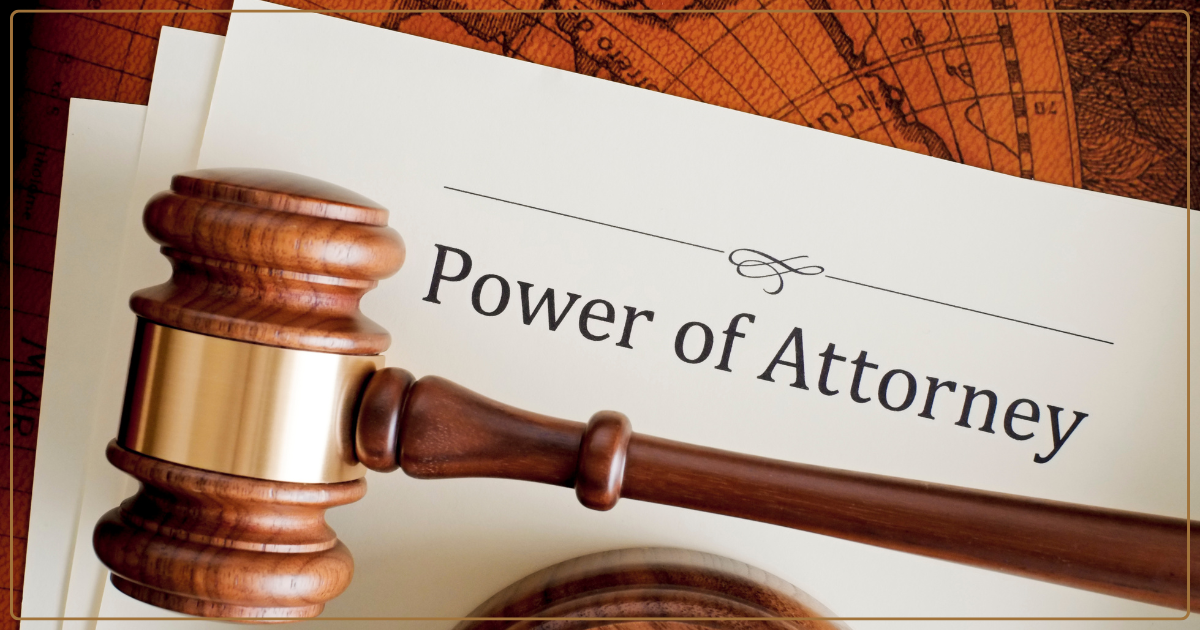
30 Dec The Role of Power of Attorney in Estate Planning
Estate planning involves more than just deciding who will inherit your assets after your passing; it also includes preparing for the possibility that you might be unable to make decisions for yourself during your lifetime. A Power of Attorney (POA) is a crucial component of a comprehensive estate plan, giving you peace of mind that your financial, legal, and healthcare decisions will be managed according to your wishes if you become incapacitated. In this post, we’ll explore the role of Power of Attorney in estate planning and why it’s essential to include it in your overall strategy.
What Is a Power of Attorney?
A Power of Attorney is a legal document that grants a trusted person, known as the “agent” or “attorney-in-fact,” the authority to act on your behalf in specific matters. This authority can be broad or limited, depending on the type of POA you establish. The main types of Power of Attorney relevant to estate planning are:
- Durable Power of Attorney: This type of POA remains in effect even if you become incapacitated. It typically covers financial and legal matters, allowing your agent to manage your assets, pay bills, and handle other financial transactions.
- Healthcare Surrogate Designation: This POA allows your agent to make healthcare decisions on your behalf if you are unable to do so. It is often paired with a Living Will to ensure your healthcare preferences are honored.
- Limited or Specific Power of Attorney: This POA grants your agent authority to act on your behalf for a specific task or period, such as selling a property while you are out of the country.
Why Is a Power of Attorney Important in Estate Planning?
1. Ensures Continuity of Financial Management
If you become incapacitated due to illness, injury, or age-related decline, your financial affairs still need to be managed. Bills must be paid, investments monitored, and assets protected. A Durable Power of Attorney allows your agent to take control of these tasks, ensuring that your financial matters are handled efficiently and according to your wishes.
2. Avoids the Need for Court Intervention
Without a Power of Attorney, if you become incapacitated, your family may need to go through a lengthy and costly court process to have a guardian or conservator appointed to manage your affairs. This process can be emotionally draining and may result in someone you did not choose making decisions on your behalf. By designating a POA in advance, you can avoid this scenario and ensure that someone you trust is in charge.
3. Facilitates Healthcare Decisions
A Healthcare Surrogate Designation ensures that someone you trust is making healthcare decisions for you if you are unable to do so. This can include decisions about medical treatments, long-term care options, and even end-of-life care. Having a Healthcare POA in place ensures that your medical preferences are respected and that the person making decisions understands your values and wishes.
4. Protects Your Business Interests
If you own a business, a Power of Attorney can be crucial in ensuring that your business continues to operate smoothly in your absence. Your agent can make decisions regarding the management of the business, handle transactions, and ensure that your business interests are protected. This can prevent disruptions and maintain the value of your business during a period when you are unable to manage it yourself.
5. Provides Peace of Mind
Having a Power of Attorney in place provides peace of mind for you and your loved ones. You can rest assured that your affairs will be handled according to your wishes, even if you are unable to communicate them yourself. Your family members will also be relieved of the burden of making difficult decisions without guidance, reducing the potential for conflict and stress during an already challenging time.
Choosing the Right Agent
Selecting the right person to act as your agent under a Power of Attorney is crucial. This individual should be someone you trust implicitly, who understands your values and is capable of handling the responsibilities involved. It’s important to have an open discussion with your chosen agent about your expectations and preferences, and to ensure they are willing to take on this role.
A Power of Attorney is an essential element of a well-rounded estate plan. It ensures that your financial, legal, and healthcare decisions are made according to your wishes if you are unable to make them yourself. By carefully choosing your agent and clearly outlining their responsibilities, you can protect your interests and provide peace of mind for your loved ones.
At Genesis Law, P.A., we are committed to helping you create a comprehensive estate plan that includes all necessary legal documents, including Powers of Attorney. Contact us today by calling (772) 539-9831 or visiting https://genesislawpa.com/scheduleaconsultation/ to learn more about how we can assist you in safeguarding your future and ensuring your wishes are honored.

Sorry, the comment form is closed at this time.